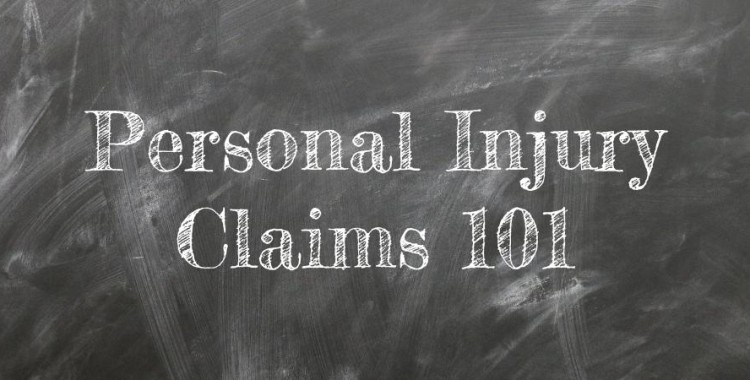Tips for Filing a Personal Injury Claim
Accidents can happen at anytime, but handling the legal aspects of a personal injury claim can be challenging. Personal injury claims can involve many different types of injuries, including automobile accidents, slip and fall accidents, or injury from defective products. Fortunately, there are several steps you can take after a personal injury to prepare you for filing a claim or a lawsuit.
Here’s a list of the top ten tips for personal injury claims:
- Seek out medical attention immediately. If you have been seriously injured, the first thing you should do is seek out medical attention. Do not attempt to handle any claims before you have properly addressed your injuries with a medical professional. Note that failing to seek medical attention after an accident can sometimes reduce the amount of damages you are able to recover. As the injured party, you may have a duty to “mitigate your losses.” This entails taking steps to ensure your own neglect does not cause any further injuries or economic losses.
- File a police report. Filing a police report can help ensure that you have records of important information. This may include the names and contact information of other parties who were involved. Also, the report itself can serve as a record of the important facts involved in the accident. The police report can be used in court if a lawsuit arises.
- Be aware of what you say at the scene of the accident. While it is necessary to communicate with the other party after an accident, exercise discretion when speaking with other parties. You are under no duty to state whose fault the injury was or to offer additional information. Avoid making statements that might make the situation more complicated, and avoid creating conflicts in relation to the event.
- Keep accurate records of all costs and expenses related to the injury. These may include hospital bills, medical diagnosis statements, bills related to property damage, and insurance records. You may also need to maintain records of lost wages if the injury has caused you to miss work. It’s also a good idea to create a written account of the injury, especially while the events and facts are still fresh in your recollection.
- Be cautious when dealing with insurance companies. Involvement with insurance companies can sometimes make the legal process more complicated in a personal injury claim. However, in most cases, working with an insurance company will be necessary to completing your personal injury claim or lawsuit. Be sure to protect your interests when negotiating with an insurance company. It may be helpful to have a lawyer on hand for advice when dealing with third parties.
- Do not sign any forms or documents without fully understanding them. This is absolutely critical. Make sure you completely understand the terms of any forms and documents to be filled out in relation to the personal injury. Do not sign any forms if you are not sure of how they will affect you in the long run. This includes any forms that may be presented to you well after the actual event. Be especially wary of any documents or contracts that ask you to release the other party from liability, or that require you to forfeit your right to a lawsuit.
- Avoid trying to settle on your own if you don’t understand what to do. Trying to settle on your own with the other party or with their insurance company can sometimes be a complicated process. If you are unsure of what you are doing, it is best to find some help through the advice of a legal expert. This is especially important if the other party will be hiring a lawyer. Working with your own lawyer can help you avoid costly mistakes that can have negative effects on your claim.
- Be aware of filing deadlines. Make sure you file your legal claim or lawsuit in a timely manner. For most personal injury claims, you only have a certain window of time after the accident to file with the courts. This is known as the “statute of limitations,” which can vary depending on the state and the type of accident involved. Once the statute of limitations has expired, you might not be able to file your claim anymore.
- Do some preliminary research on the legal process. It may be worth your while to familiarize yourself with the basics of personal injury lawsuits in your area. Local rules may vary, and personal injury claims can take some time to be fully resolved. While you are not expected to become an expert, speaking with a lawyer for some basic guidelines can help take some of the confusion out of the process.
- Be aware of what type of lawyer you will need to hire. Remember, not all personal injury lawyers are the same. Some specialize in certain fields, while others handle more general claims. There are many different types of personal injury lawyers, and one may be more suitable for your situation than another.
Have questions regarding your rights in an automobile accident? Contact one of our personal injury attorneys.







